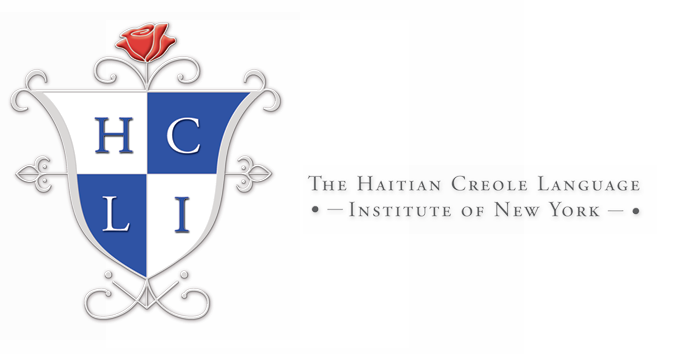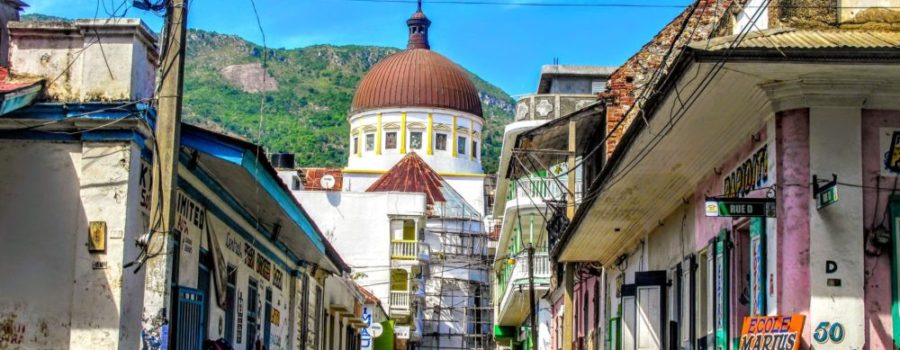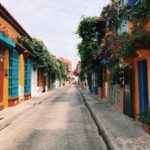HCLI Intern Valerie spent some time speaking with her father about the Kreyòl language. Here is an overview of that conversation.
Since my father was born and raised in Haiti, I wanted him to illustrate for the dyaspora his cultural experience around Haitian Kreyòl in Haiti. I asked him if there was acceptance of Kreyòl, who speaks it and who doesn’t, as well whether it is considered a ‘formal’ language in Haiti. He began his long-winded answer by stating that given the history of the language, everybody speaks it. Though everyone knows Kreyòl, there is “a certain stigma to it…that is, if you only speak Kreyòl and you don’t [also] speak French, it’s a problem. So, there’s a social stigma attached to it…[w]hen you meet someone, it is proper to begin the conversation in French even though you know it will end in Kreyòl. [Otherwise] It is considered bad taste”. He went on to point out that French is the bureaucratic language of the country and mainly spoken by the country’s elite, not necessarily the whole population. In our conversation, he also noted that children’s educational instruction was primarily conducted in French. Though he alluded to this being remedied, it begs the question of accessibility to education as the primary language spoken in the majority of Haitian households is Kreyòl.
“[In Haiti], when you are speaking to someone who is working for you such as the housemaid, you address them in Kreyòl. But, when you are speaking to someone “at your level” you have to use French, you can’t use Kreyòl”. As we continued our discouraging conversation about the ways that Kreyòl is wielded as a social weapon, I began to remember the ways that I participated in delegitimizing the language during my time in Haiti. On trips to visit family friends in Port-au-Prince, I tried to be on my best behavior which typically meant speaking French entirely, though it was far more challenging and limiting than Kreyòl. As a snarky nod to the remnants of French colonization and anti-blackess in Haitian society, my father stated, “We tend to be attracted [to others] because [they] are speaking the language of the master”.
I grew up speaking French and Kreyòl in my home before I learned English in school. After hearing what my father had to say about his cultural experience of the Kreyòl language, I asked him why he thought it was important to pass the language down to me. Ultimately, he knew I would learn Kreyòl because he spoke it in the house and with his friends. In short, he was more concerned with making sure I knew how to speak French because, “I did not want you to suffer the same kind of discrimination by not knowing French. If you can speak French, it opens doors for you”. My next question was one that really spoke to my relationship with my mother tongue: What do you believe is the magic of Haitian Kreyòl? My next question was one that really spoke to my relationship with my mother tongue: What do you believe is the magic of Haitian Kreyòl? “Wow, Kreyòl!” my father exclaims, grinning for the first time in this conversation.
[wr_vc_blockquote text_color=”text-color-888888″ client_name=”Valerie’s Dad” text_style=”body-text-m”]I don’t know, I just love it. There are things you cannot explain; people [have] to experience this themselves. I’ve seen it, that magic you’re talking about, when we tell a joke in Kreyòl and we cannot translate it. It’s only in Kreyòl, [that] it makes sense. We don’t even use a whole word, we just make a sound and people knows what’s going on; like “Bip!” or “Bow!”. It carries more than just sound. It carries the emotions, memories, everything. The magic of Kreyòl, I can feel it but I do not have the words to express it.[/wr_vc_blockquote]
He points out the Kreyol is a language that you can speak, and may not fully understand. He cites the Haitian diaspora that learns Kreyòl through their parents, just as I did. “[I]f Kreyòl is not their first language they may not catch that magic [because] they are not living the experience and feeling the soul of Kreyòl”.
I was reminded of moments where my mother would tell me, “Ban m tèt mwen!” and my witty toddler response in defiance would be, “You already have your head!”. I knew even then that translating Kreyòl into English made it lose all of its meaning. I finally asked my father what his favorite Kreyòl phrase was and why. His response was a Haitian proverb that he taught me in my early childhood, “Lè ti poul twò cho, malfini pase pran li”. The literal translation is: “When a little chicken gets too hot, the eagle will come get it”. It means to calm down before I get myself hurt.
Our conversation floated through the halls of the Central Library for about an hour even after I stopped recording. We drew linguistic references to literature like “Bouki ak Ti Malice” while I checked out Tressie McMillan Cottom’s “Thick” for my graduate studies. As I forge my path through academia and recognize how deep anti-black ideologies run, even in my own culture and language, I am reminded that I have still so much to discover about the liberatory magic that Haitian Kreyòl possesses. Chemen long pa touye moun… and I am prepared for lifelong discovery.



 Follow
Follow




Leave a Reply
Your email is safe with us.
You must be logged in to post a comment.